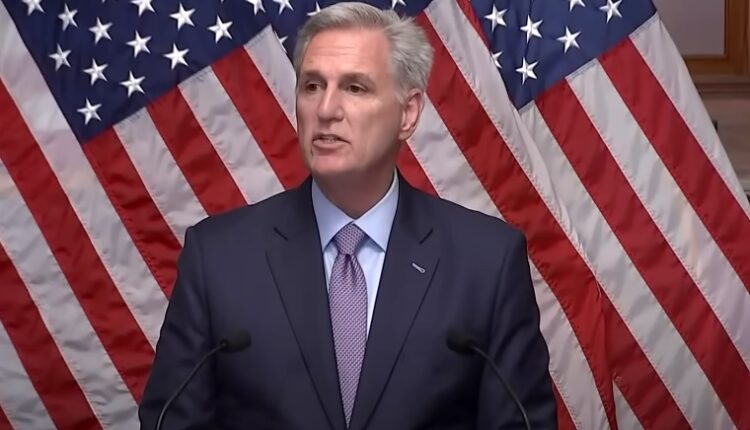
SAFER Banking Trajectory In Question As Kevin McCarthy Ousted As House Speaker
Following the successful Senate Banking Committee markup vote last week, the prospects for bicameral SAFER Banking Act legislation appeared positive in both legislative branches of government. However, the prospects thereof took a unforeseen twist yesterday as Kevin McCarthy, a known supporter of cannabis banking legislation, was ousted as the House Majority Speaker. His impending replacement will be critical in regards to where SAFER is prioritized on the Republican House agenda—assuming it passes the Senate first.
In the United States Congress, the passage of a bicameral bill is a multi-step process dictated by Article I, Section 7 of the U.S. Constitution. Initially, a bill can be introduced in either the House of Representatives or the Senate, after which it undergoes committee hearings and revisions within its originating chamber. If it garners majority approval in the chamber where it was introduced, it proceeds to the other chamber for consideration.
In the second chamber, the bill undergoes a similar process, including committee review, floor debates, and potential amendments. If it secures majority support in this chamber, it advances in the legislative process. In cases where the two chambers pass different versions of the same bill, a conference committee comprising members from both chambers convenes to reconcile differences and produce a single, agreed-upon version.
Ultimately, the reconciled bill is put to a vote in both the House and the Senate. To become law, it must receive approval in identical form from both chambers and be signed by the President.
Alternatively, if the President vetoes the bill, it can still become law if both the House and the Senate vote to override the veto by a two-thirds majority in each chamber. In essence, a bicameral bill necessitates the endorsement of both chambers and the President’s approval (or veto override) to achieve legal status.
In this instance, it will be the Senate to take up SAFER Banking Act legislation first, followed by the House should the bill advance. With Kevin McCarthy ousted, the new House speaker may not be as amenable to the legislation as Mr. McCarthy was known to be.
Kevin McCarthy’s Record Spotty On Cannabis, However Positive On SAFE
Although Kevin McCarthy was not known to be an especially grandiose supporter of cannabis issues throughout his political career, he was a confirmed supporter of cannabis banking legislation. A quick glance at McCarthy’s track record shows two positive votes to advance SAFE in the House previously—a quest that ultimately fell short in the Senate.

In 2019, under the tenure of previous Democrat House Speaker Pelosi, McCarthy supported Secure and Fair Enforcement Banking Act (H.R. 1595) as the House Republican Leader. Although only 91 out of 198 Republicans voted for the measure, McCarthy was among the “Yeas“, ultimately securing a convincing 321-103 vote margin.
The same dynamic occurred in 2021 in regards to Secure and Fair Enforcement Banking Act (H.R. 1996), where Kevin McCarthy was among half of the 212 Republican House Representatives which supported SAFE. Again, Mr. McCarthy served as the House Minority Leader at the time.
Reported House Candidates May Be Less Friendly To Cannabis Banking Issues
According to Axios sources, The two most likely candidates for House speaker as of Wednesday morning are Majority Leader Steve Scalise (R-La.) and Judiciary Chair Jim Jordan (R-Ohio). While both are tenured and high ranking Republican House officials, neither are known to be friendly on cannabis issues.
According to NORML’s breakdown of Mr. Scalise’s voting record, the Louisiana Rep. has twice voted against SAFE Banking in 2019 and 2021—although he did support The Medical Marijuana Research Act (H.R. 5657) in 2022. The same for Jim Jordan, although he voted against H.R. 5657 that same year. All told, NORML gives both Reps. an ‘F’ on their voting record pertaining to cannabis-related bill.
While Scalise and Jordan are believed by some insiders to be the leading candidates for House Speaker, other candidates are in the mix. More cannabis-friendly Representatives such as Tom Emmer are also believed to be angling at the gavel, as well as a field of lesser-known candidates.
TDR will have additional coverage as events unfold.



